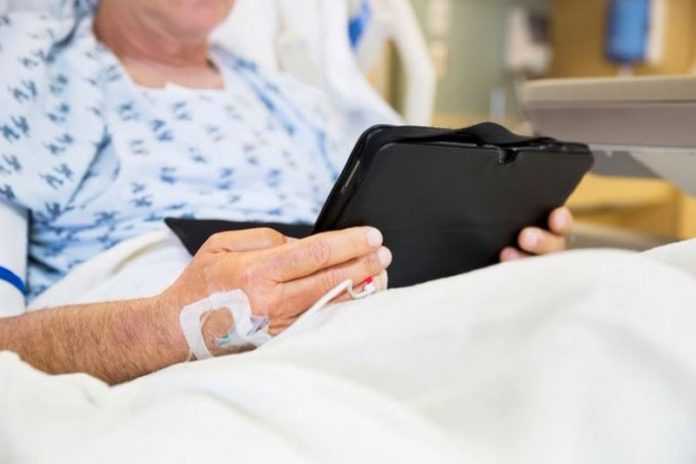
Families may have to say goodbye to their dying loved ones over Skype as NHS bosses continue to look for ways to prevent the coronavirus spread.
Doctors have been told to restrict visitors in intensive care wards as best they can in new official guidance, which includes using “mobile devices and video calling” instead of seeing dying loved ones in person.
If the outbreak reaches the levels that are being predicted, clinicians will also have to stop “non-essential staff and any families or friends”entering clinical care areas.
The guidance, was issued to hospitals across Britain on Tuesday by the Faculty of Intensive Care Medicine and the Royal College of Anaesthetists, reports The Telegraph.
All you need to know about coronavirus
Doctors are being told to discuss using the drastic measure “particularly on compassionate grounds during end-of-life processes”, the guidance says – while all NHS hospitals must have a senior clinician tasked with protecting confidentiality of sensitive data.
The Telegraph reports doctors have defended the new guidance as necessary in such an unprecedented situation – though UK Sepsis Trust founder Dr Ron Daniels has admitted it may appear “distasteful to some”.
However, he said if a “healthy 30-year-old grandson” wants to say goodbye to his dying elderly relative then “most doctors would take the guidance with a pinch of salt”, said Dr Daniels.

And with the NHS at risk of becoming stretched too far, junior staff will be asked to take on more senior roles, the guidance also states.
Clinicians with “non-essential managerial roles” will likely be moved on to the wards and staff with “critical care expertise” could be given supervisory positions as part of the shake-up.
While all staff maybe given all level of tasks, from restocking and transferring equipment to completing admin and resupplying bed areas, the report continiues.
Newly-trained staff are also being advised not to manually ventilate Covid-19 patients who are struggling to breathe, while staff in general are being encouraged to offer support in decisions to take some of the weight off leaders.

